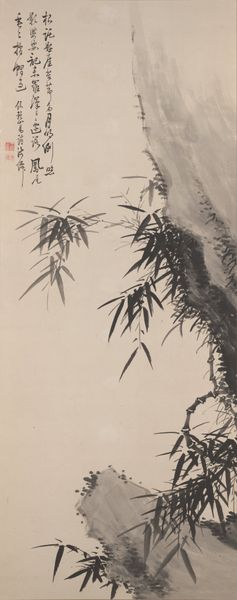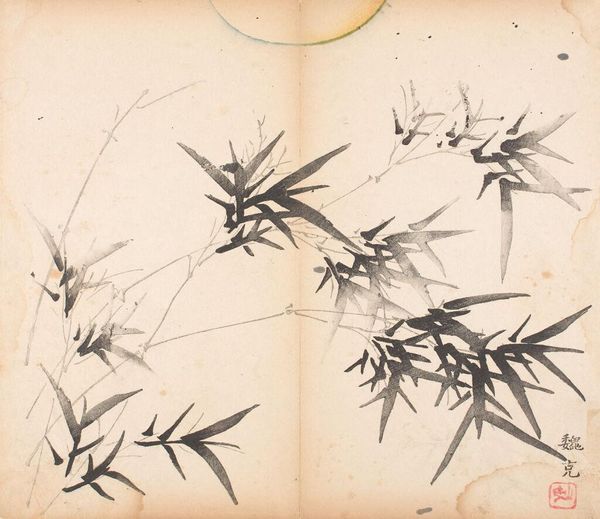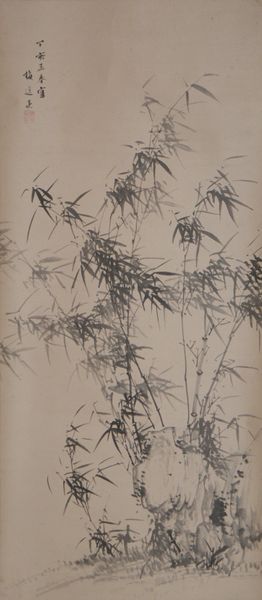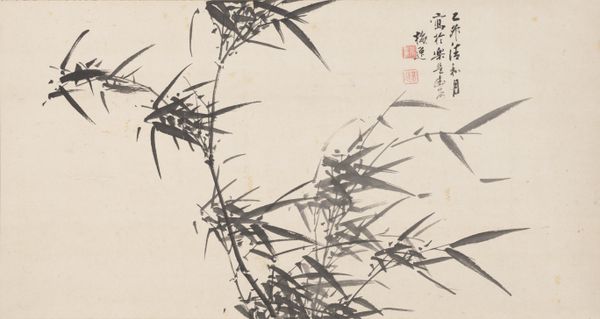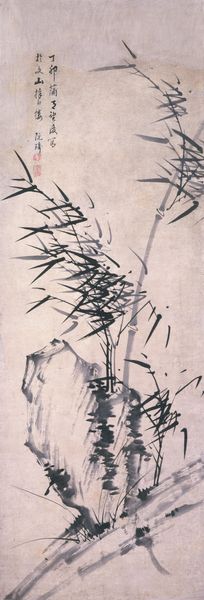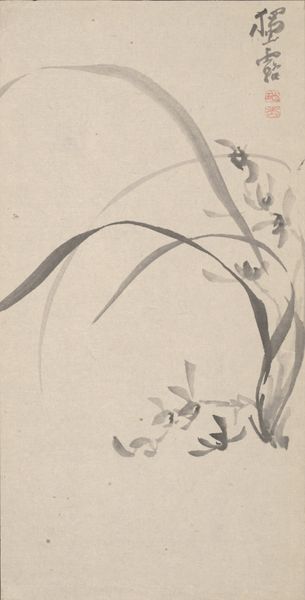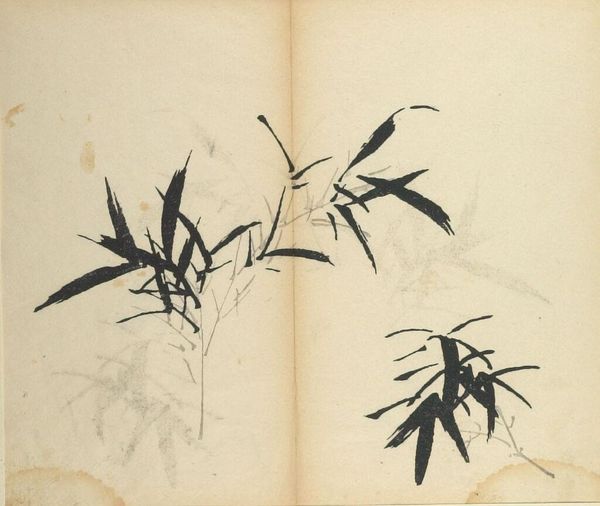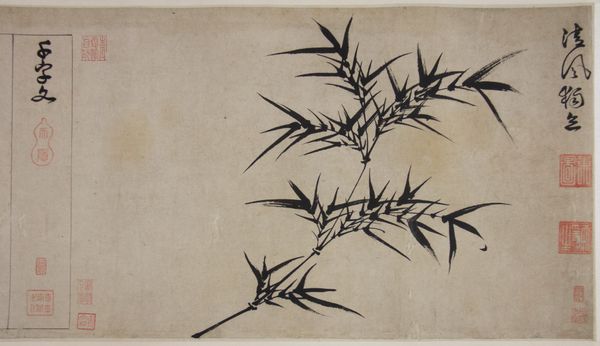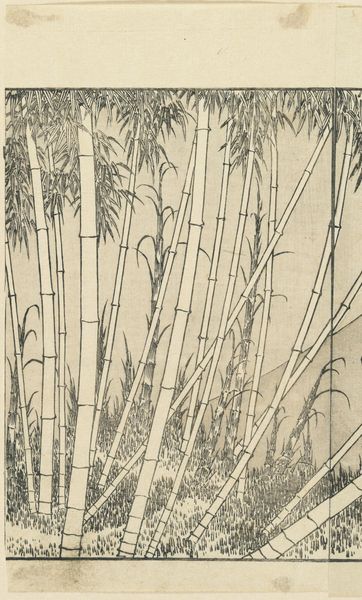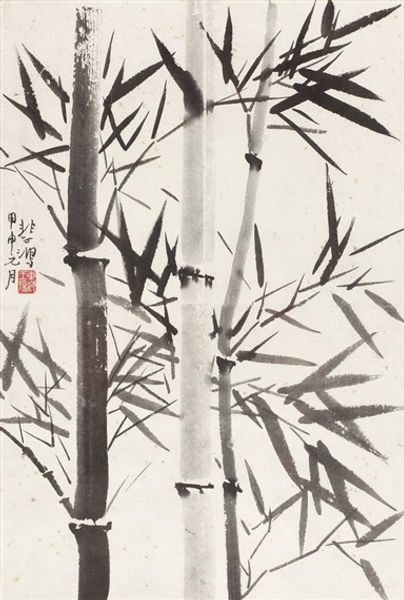
drawing, painting, paper, ink
#
drawing
#
painting
#
asian-art
#
landscape
#
figuration
#
paper
#
ink
#
orientalism
#
realism
Copyright: Public domain China
Editor: Xu Beihong's "Ink Bamboo," painted in 1940 with ink on paper, offers such a serene scene. There's a sense of quiet strength in the bamboo stalks. How would you interpret this work, looking at it through a wider lens? Curator: Xu Beihong painted this during a tumultuous period, the Second Sino-Japanese War. While seemingly just an innocent depiction of bamboo, it’s essential to consider the symbolic weight bamboo carries in Chinese culture, and how that intersects with the socio-political context of the time. What do you know about the symbolism of bamboo? Editor: I believe it represents resilience, integrity, and flexibility because it can bend in the wind but doesn't break. Curator: Exactly. Xu was part of an intellectual movement that saw art as a tool for national rejuvenation. Paintings like this, displayed in public, reaffirmed cultural identity and promoted resistance against foreign aggression. The choice of ink wash, a traditional medium, further underscores this connection to Chinese heritage. It acted almost as a form of cultural preservation. Editor: So it's not *just* a pretty picture. It’s about maintaining cultural values amid conflict. I'd never have thought of that! Curator: Consider too the institutional forces at play. Xu Beihong headed the China Central Academy of Fine Arts. How did that influence what kind of art was validated and showcased? Editor: I see. His position likely shaped artistic standards and promoted works with nationalistic or patriotic themes, ensuring their prominence and interpretation. Curator: Precisely. By understanding the historical context, we reveal the deeper public meaning of "Ink Bamboo." Editor: This really enriches the way I will engage with other pieces from that period.
Comments
No comments
Be the first to comment and join the conversation on the ultimate creative platform.

